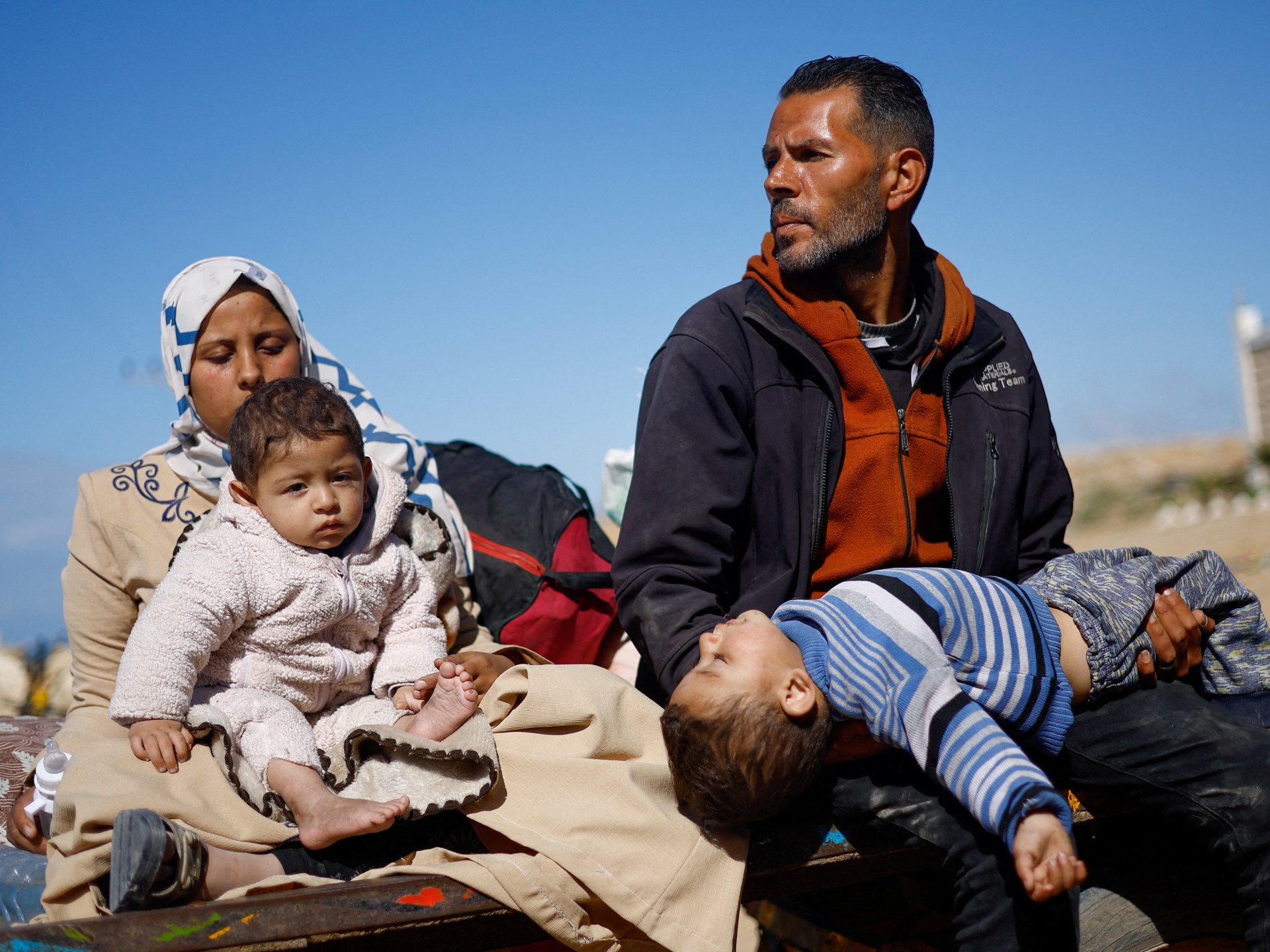Israel’s Prime Minister Benjamin Netanyahu has approved plans for an attack on Rafah, where 1.4 million displaced Palestinians have sought shelter, while planning to send a team to further truce talks in Qatar after mocking a ceasefire proposal by Hamas as “ridiculous”.
Israel’s allies and critics warned Netanyahu against the invasion of Rafah fearing mass civilian casualties, but the Israeli government claims that the area in southern Gaza is one of the last strongholds of Hamas which it has pledged to eliminate.
“Hopefully, the ground invasion of Rafah is just a bluff so they can use this as leverage to get something in negotiations. But everything Netanyahu said he will do, he did it, so I assume it is very likely this is going to happen,” Luciano Zaccara of the Gulf Studies Center at Qatar University told Al Jazeera of Israel’s mixed messages.
Hamas had presented a new ceasefire plan to end Israel’s war on Gaza that includes the release of Israeli captives in exchange for Palestinian prisoners, with sources telling Al Jazeera that it would be a three-phased truce, with each stage lasting 42 days.
A statement from Netanyahu’s office late on Friday said the Israeli military was “preparing operationally and for the evacuation of the population” of Rafah.
However, it gave no timeframe and there was no immediate evidence of extra preparations on the ground.
Widespread criticism
Reporting from occupied East Jerusalem, Al Jazeera’s Hamdah Salhut said Israel’s talk of an impending ground invasion in Rafah comes despite growing opposition, especially from its biggest political and military ally, the United States.
“American officials say they simply wouldn’t support an operation such as this,” Salhut said, adding that Netanyahu has planned “both for the military invasion and evacuation of about 1.5 million Palestinians in Rafah”.
US Secretary of State Antony Blinken told reporters in Austria on Friday that the US needed to see a clear and implementable plan from Israel for Rafah, including to get civilians out of harm’s way.
Dutch foreign minister Hanke Slot said: “The Netherlands firmly repeats its call to Israel to refrain from such an offensive, which would result in an even bigger humanitarian catastrophe,” adding in a post on X that “an immediate humanitarian ceasefire is of the highest importance, resulting in a sustained cessation of hostilities”.
The United Nations had already warned Israel last month that a ground invasion of Rafah “could lead to a slaughter in Gaza”.
“They could also leave an already fragile humanitarian operation at death’s door,” UN aid chief Martin Griffiths said.
Humanitarian situation ‘beyond catastrophic’
Jagan Chapagain, the head of the International Federation of Red Cross and Red Crescent Societies, said civilians in Gaza are “facing an unprecedented level of indignity, misery and suffering”.
“The healthcare situation is on the brink of collapse with hospitals facing desperate conditions,” he said in a statement on X, adding that the humanitarian situation in the enclave is “beyond catastrophic”.
Meanwhile, the first aid vessel to reach Gaza, operated by the Spanish charity Open Arms, has offloaded 200 tonnes of food aid to the enclave, completing a pilot project that could open the way for more assistance to come in via maritime corridors.
US charity World Central Kitchen said a second shipment was being prepared in Cyprus and that thousands of tonnes of aid could reach Gaza each week going forward.
Humanitarian organisations have repeatedly called for Israel to open more land border crossings to let in humanitarian supplies, insisting that airdrops and maritime corridors are costly and inefficient ways of delivering assistance.

